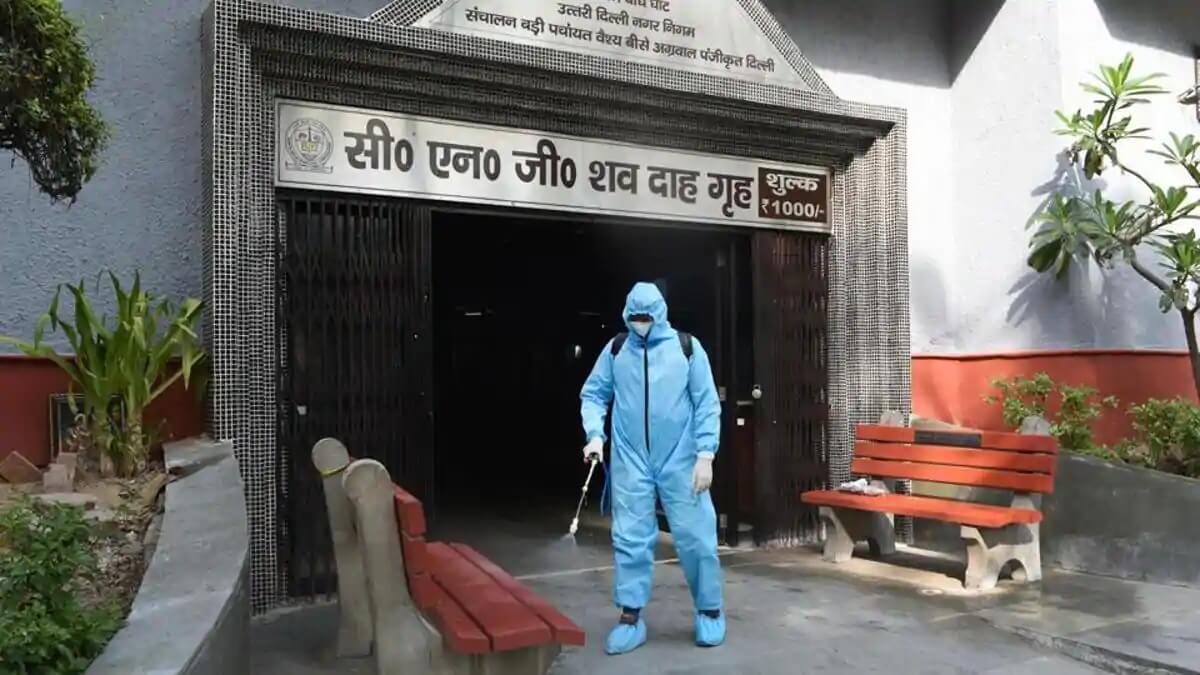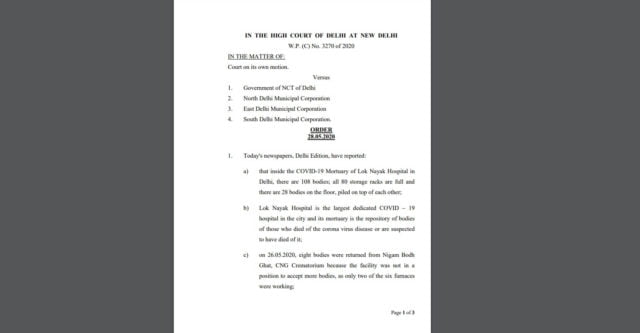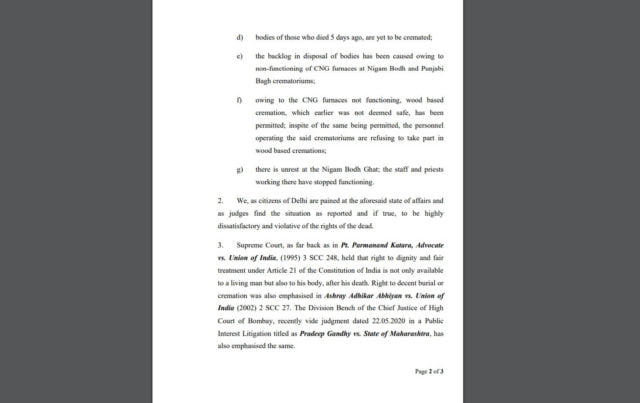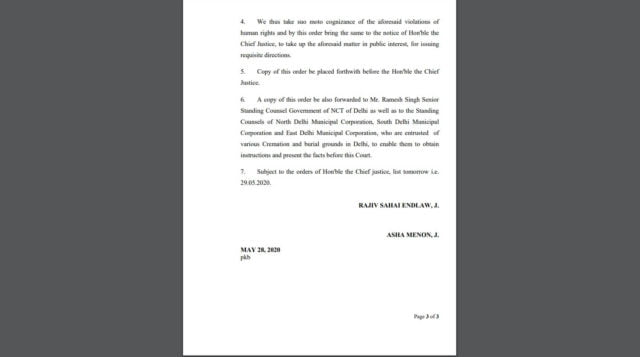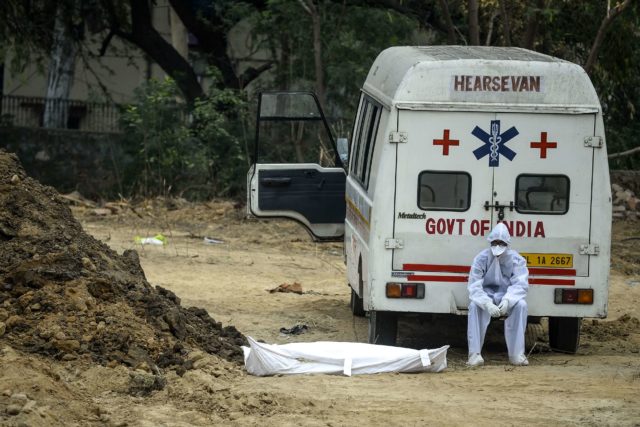We might be settling into the new normal of life in quarantine and social distancing but the coronavirus pandemic is still raging outside.
People are still contracting the infectious disease and more tragically many are dying due to it too.
Till yet India has seen over 4,500 people die due to coronavirus out of a total of 1,67,442 confirmed cases.
This might not seem like that big of a number in front of the confirmed cases but it is not that small either.
We are seeing this with how crematoriums and morgues are struggling with the new coronavirus patients who have passed away. They are quickly running out of space and a big backlog has been building in doing the last rites of those people even with crematorium employees working longer hours.
As per some reports, some of the morgues are even sending the dead bodies back to the hospital since they don’t have enough space for them.
However, the Delhi High Court in recent news has pulled up the various Delhi Municipal Corporations for allowing this to happen.
What Has Delhi Court Done?
On Thursday, that is 28th May 2020, the Delhi High Court took suo motu cognizance of the current backlog at Delhi’s Nigambodh Ghat and Punjabi Bagh crematoriums.
A suo motu cognizance is when the court on its own takes up a case without having a second party bring it to them.
A Division Bench consisting of Chief Justice DN Patel and Justice Sangita Dhingra Sehgal has asked the Delhi Government to submit a status report on this issue by 2nd June.
The suo moto cognizance was taken up by a Division Bench of Justice Rajiv Sahai Endlaw and Justice Asha Menon who came across a newspaper report that talked about the bad way the dead bodies were being treated at these crematoriums.
They then passed an order to get the Chief Justice’s attention and asked that the matter be taken up in public interest with appropriate directions being given on how to make it better.
Alleging it to be a human rights violation the Delhi High Court released an order directing it towards both Delhi Government and the 3 Municipal Corporations of Delhi. In the order, they stated the findings of the newspaper report as being:
-
that inside the COVID-19 Mortuary of Lok Nayak Hospital in Delhi, there are 108 bodies; all 80 storage racks are full and there are 28 bodies on the floor, piled on top of each other;
-
Lok Nayak Hospital is the largest dedicated COVID – 19 hospital in the city and its mortuary is the repository of bodies of those who died of the corona virus disease or are suspected to have died of it;
-
on 26.05.2020, eight bodies were returned from Nigam Bodh Ghat, CNG Crematorium because the facility was not in a position to accept more bodies, as only two of the six furnaces were working;
-
bodies of those who died 5 days ago, are yet to be cremated the backlog in disposal of bodies has been caused owing to non-functioning of CNG furnaces at Nigam Bodh and Punjabi Bagh crematoriums;
-
owing to the CNG furnaces not functioning, wood based cremation, which earlier was not deemed safe, has been permitted;
-
inspite of the same being permitted, the personnel operating the said crematoriums are refusing to take part in wood based cremations;
-
there is unrest at the Nigam Bodh Ghat; the staff and priests working there have stopped functioning.
The court added that, “We, as citizens of Delhi, are pained at the aforesaid state of affairs and as judges find the situation as reported and if true, to be highly dissatisfactory and violative of the rights of the dead.”
Read More: What All Is Wrong With AIIMS Nursing Officer Recruitment?
What Is Delhi Govt’s Response?
In the latest reports, the Delhi Government has come back to the court with a response as to why this came about and even provided steps that were being taken in order to resolve this.
As per a legal website report, the Delhi Government stated the following reasons as to why this was happening:
1. Reduced capacity of Nigambodh Ghat to handle bodies, on account of snags in furnaces
2. Workers at crematorium refusing to handle COVID-19 deceased;
3. Sudden spike in COVID-19 cases, and related deaths in Delhi;
4. Relatives refusing to come forward to claim bodies, etc.
In order to take care of this situation, the Delhi Government has authorised wood fire traditional cremations once more so that there is no backlog.
They have also extended the working hours of Delhi crematoriums to be from 7 am to 10 pm instead of their earliest 9-4 hours.
The Lok Nayak Jai Prakash Narayan Hospital (LNJP) was also informed to take the bodies to crematoriums at Panchkuian and Punjab Bagh instead of taking them all to Nigambodh Ghat.
The government also reported to the court that on 28th May around 28 bodies were disposed off and the remaining 35 bodies would be disposed of by 30th May.
They said that only the bodies that were under investigation or awaiting a post-mortem (PM) were still being kept intact.
Image Credits: Google Images
Sources: Outlook India, Live Law, Zee News
Find the blogger @chirali_08
This post is tagged under: delhi high court, delhi municipal corporations, coronavirus, coronavirus india, coronavirus deaths, coronavirus india deaths, coronavirus patients, coronavirus patients delhi, dispose of bodies, cremate, bury, burial grounds, crematoriums, CNG, traditional wood fire cremations, Delhi government, response, suo moto cognizance, Lok Nayak hospital, number of dead, dead bodies, Nigam bodh ghat, electric crematoriums, backlog




























